|
Dusty Dog Reviews The whole project is hip, anti-academic, the poetry of reluctant grown-ups, picking noses in church. An enjoyable romp! Though also serious. |
|
Nick DiSpoldo, Small Press Review (on Children, Churches and Daddies, April 1997) Children, Churches and Daddies is eclectic, alive and is as contemporary as tomorrow’s news. |



|
Kenneth DiMaggio (on cc&d, April 2011) CC&D continues to have an edge with intelligence. It seems like a lot of poetry and small press publications are getting more conservative or just playing it too academically safe. Once in awhile I come across a self-advertized journal on the edge, but the problem is that some of the work just tries to shock you for the hell of it, and only ends up embarrassing you the reader. CC&D has a nice balance; [the] publication takes risks, but can thankfully take them without the juvenile attempt to shock. |
|
from Mike Brennan 12/07/11 I think you are one of the leaders in the indie presses right now and congrats on your dark greatness. |
Volume 232, May 2012
Internet ISSN 1555-1555, print ISSN 1068-5154
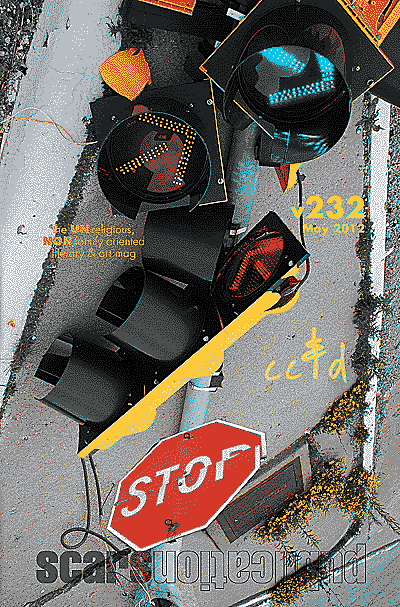
see what’s in this issue...
Note that in the print edition of cc&d magazine, all artwork within the pages of the book appear in black and white.
|
Order this issue from our printer as a a $7.67 paperback book (5.5" x 8.5") perfect-bound w/ b&w pages |

poetry
the passionate stuff
God exists only in thoughtJoseph Hart
God exists only in thought;
|
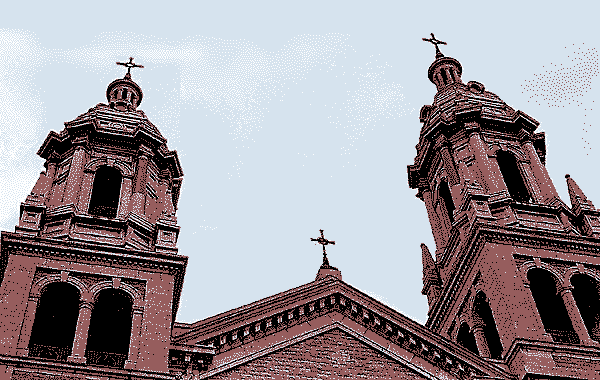
Waking Up In Highland HospitalJoseph Hart
A black Pink Lady in the hospital
|
Sought Through Prayer and MeditationBob JohnstonOriginally published in Margie
With you I have known peace, Lida, and
He talks to God each morning and evening
God has told him he must be a stern and loving husband,
My duties are to love and cherish and obey, particularly
God has told him that the Ten Commandments
I wanted to talk direct to God too, so today I tried,
|
to PaintMarcin Majkowski
Today
The canvass
It’s time
All’s ready
http://depechmaniac.bloog.pl http://satyrykon.net http://ateist-kleranty.deviantart.com/
|

At This Point, art by the HA!man of South Africa
Now that I’m disowned by God HerselfFritz Hamilton
Now that I’m disowned by God Herself,
like an atomic leak affecting my power system
God is the nuclear waste that women make of me
It’s a family disease, like contaminated water at
God as bones in a robe with her sickle up my ass,
God as my bone in a robe with my pickle in a jar,
O Jesoo, why dost thou condone this travesty.
& the soul is germinal.
The destruction of others can be none of my business,
& the best intentions open wounds & gush blood. !
|
Starving in Kenyan refugee campsFritz Hamilton
Starving in Kenyan refugee camps,
who can’t hold up their swollen heads/ mothers
in death tents without water/ the
only answer taking its time giving
pour raisins & milk on my Wheaties & !
|
Turn the CornerLuis Cuauhtemoc Berriozabal
When I turn the corner,
|
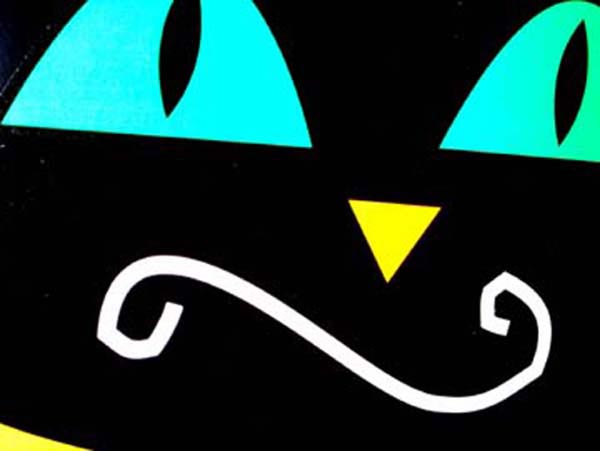
Cheshire, art by Cheryl Townsend
Vapor TrailsBruce Matteson
My ancestors were rocket men of primitive origin
|
| Bruce Matteson reads his May 2012 (v232) cc&d poem Vapor Trails |

Watch the YouTube video of Bruce Matteson reading his poem straight from the May 2012 issue (v232) of cc&d magazine, live 6/6/12at Gallery Cabaret’s the Café Gallery open mic in Chicago) |
A Persuasion Called FreedomCopyright R. N. Taber 2011
In some parts of the world,
In some parts of the world,
In some parts of the world,
In some part of the world,
In some parts of the world,
In some parts of the world,
|
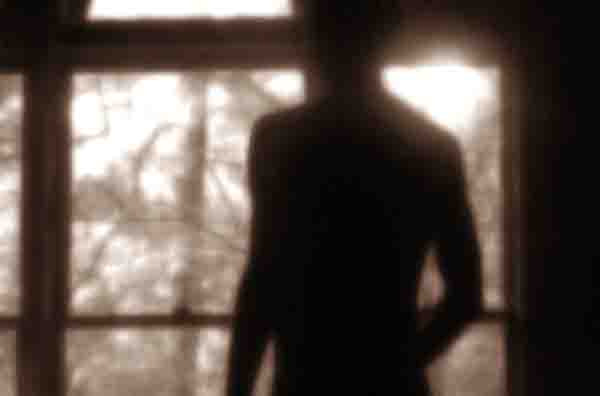
Morning, art by Henry Walter Matthews
To Help You ForgetDavid Thompson
It’s the odor, so clean it makes you want
They called a few weeks ago, said
You sit in the car, windows down,
After ten minutes, you take the shoes back
|
Super Neurosis Man Jeffrey Park
Never ask a psychiatrist
|
Jeffrey Park BioBaltimore native Jeffrey Park currently lives in Munich, Germany, where he works at a private secondary school and teaches business English to adults. His latest poems appear or are forthcoming in Subliminal Interiors, Mobius, Punk Soul Poet, Darkling Magazine, The Camel Saloon and elsewhere.
|
Poem from
Kenneth DiMaggio |
No Shoeboxes AllowedDon Hargraves
Just so you know, I got booted out a month ago.
I looked at the rules, found this odd gem in the mix:
I asked the management, their representative said
A couple days later I took a look in my closet,
I’m making plans to move elsewhere as we speak. Wanted to do one with John...still working on one with just vocal Dave I did this one with your flattop.
|



Takeoff From Dallas Love FieldSheryl L. Nelms
the plane down the runway
and leaped into hot air
|




| Janet Kuypers reads the Sheryl L. Nelms May 2012 cc&d poem Takeoff From Dallas Love Field with live piano music by Gary |

Watch the YouTube video of Janet Kuypers reading the poem straight from the May 2012 issue, live 5/9/12 at Gallery Cabaret’s the Café Gallery in Chicago (w/ live piano from Gary) |
CoreAudrey Burns
It’s the last day of May and we watch
No matter, we bury our beer deep in the sand.
We joke it could be a Genesee beer commercial ‘From the shores of Ontario Lake...’
‘Sturgeon live there’ is my boyfriend’s contribution,
All that’s left are the degenerates smoking hash around the bonfires,
|
Deuteronomy 23:20:
Michael Ceraolo |
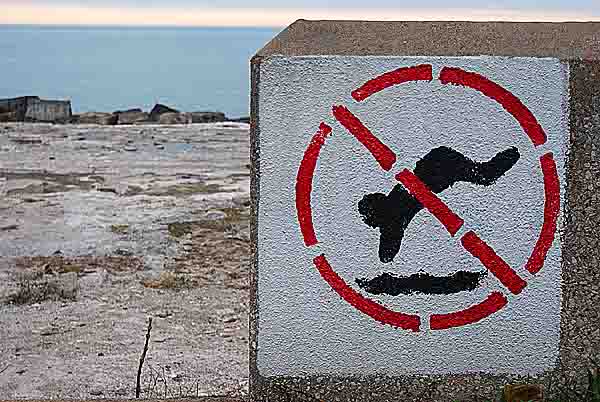
image by John Yotko
AquariusW. Dontā Andrews
Out of the water he walked,
The three ponds were quiet around midnight,
His body was blue, aqua,
The wind can bite in that month, bite like a dog, in that freezing month.
His legs moved slowly, fluid, though I could barely keep up.
At an intersection, street lines running oddly through the middle,
He looked at me, poured icy water from the bottomless vessels,
I stared into my own wiser eyes, unblinking in cold wind.
Violently backhanded by understanding, I stood on the quiet side of the yellow lines,
Is that Aquarius or me? Aquarius? Or me?
|
W. Dontā Andrews BioW. Dontā Andrews lives and writes in Kalamazoo, Michigan. He studied Business Management at Cornerstone University. He studies life for writing material. He founded and has run a regularly attended writers group for the past 6 years. His work was also published in the anthology “All Poetry is Prayer” (Creative Justice Press). Recently he finished his first book, a collection of stories and poetry concentrated on self awareness, or rather the epidemic of its absence in the world today. It includes the pieces accepted for publication in CC&D Magazine. He is currently working on a novel.
|
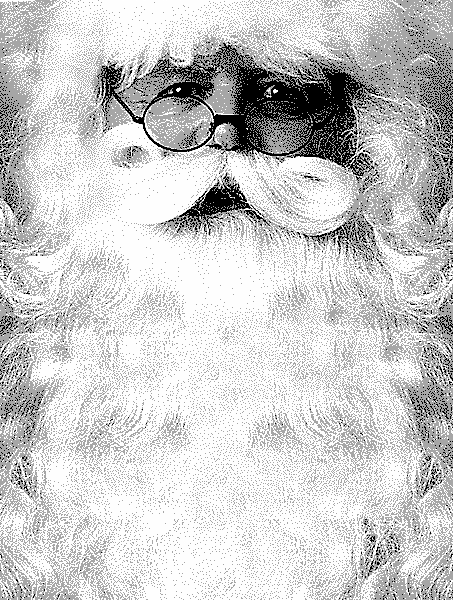
ShamelessHolly Day
my son comes home from my mother’s house
|
Short BioHolly Day is a housewife and mother of two living in Minneapolis, Minnesota. Her poetry has recently appeared in Hawai’i Pacific Review, The Oxford American, and Slipstream. Her book publications include Music Composition for Dummies, Guitar-All-in-One for Dummies, and Music Theory for Dummies, which has recently been translated into French, Dutch, Spanish, Russian, and Portuguese.
|
| Janet Kuypers reads the Holly Day May 2012 cc&d poem Shameless with live piano music by Gary |

Watch the YouTube video of Janet Kuypers reading the poem straight from the May 2012 issue, live 5/9/12 at Gallery Cabaret’s the Café Gallery in Chicago (w/ live piano from Gary) |
TruthPaul J. Burt
Truth is never where it is supposed to be
always socially inadequate
it separates your breastplate
|

Rushing to You, art by Rose E. Grier
Mania on TiptoesLinda Webb Aceto
Mania on tiptoes
Mania on tiptoes
Mania on tiptoes
|

Lunar Strike, art by Peter LaBerge
who also has additional artwork throug flickr
Monday through FridayDrew Nacht
I woke up and noticed the aging in the mirror
|
How Not To DrownFrank DeCanio
Well drowning’s not the problem. BLACK BOOK PRESS #38
|
Elimination RoundsJohn Newmark
Darlene was one hundred
(He was fifty,
The list declared she He agreed to drive the car.
|
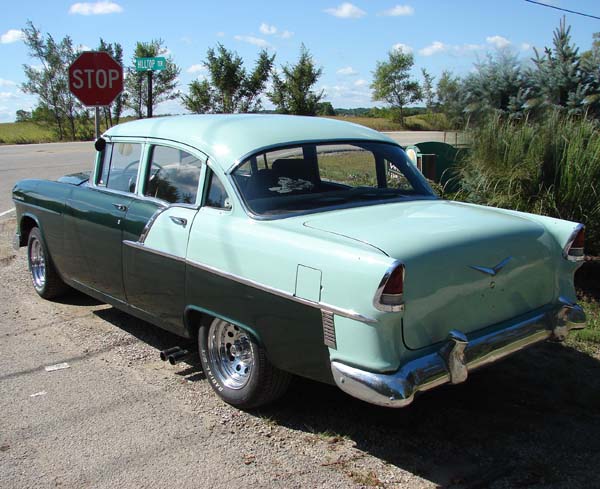
| Janet Kuypers reads the John Newmark May 2012 cc&d poem Elimination Rounds with live piano music by Gary |

Watch the YouTube video of Janet Kuypers reading the poem straight from the May 2012 issue, live 5/9/12 at Gallery Cabaret’s the Café Gallery in Chicago (w/ live piano from Gary) |
TasteEmily Olive Petit
Worship
|
InnocenceLily Gardner
I see a picture of your face.
You hurt a young child.
She tells me it was a lovely conversation with you.
You want me to see a picture
It would not be so startling.
|
In These TimesJanet Kuypers(adaptive poetry 09/26/11, where all bold lines are titles from books listed in the Chicago Underground Library catalog)
In These Times
with my Altered Ink
you want
but
these
In These Times
|

See this YouTube video of her reading this poem 10/01/11 at Studio 914/Chicago Underground Library (Sony), for Chicago Calling |

See this YouTube video of her reading this poem 10/01/11 at Studio 914/Chicago Underground Library (Canon), for Chicago Calling |

See this YouTube video of her poem readings 10/01/11 at Studio 914/Chicago Underground Library (Canon), for Chicago Calling |
Remembering DeathJanet KuypersCompiled 09/01/11
I (from “Harder to Burn”, writtem 09/06/06)
you hear of goth teenagers
imagine Son of Svengouli it’s funny, caskets
right now, all I think of so settle for cardboard
so, think of the novelty of caskets
II (from “Wanting to Touch a Corpse” written 09/05/06)
when she knew she was dying, I wrote her a letter
when I saw her in the coffin
III (from “Knelt and Cried”, written 09/03/06)
when I saw her in the coffin
before I left her
IV (from “A Little Angel Inside” written 09/11/06)
as the days wore on
well, it seems strange seems eerily strange
and Kristina from Fuller Funeral Home
it never occurred to me
when we left Fuller Funeral Home
V (ending from “the Messenger” written 08/31/06)
when I’d tell people about the death I couldn’t think of any words
I’m the messenger
|

Watch this YouTube video of Kuypers performing this poem with the HA!man of South Africa 10/16/11 live in Chicago |

Watch this YouTube video of Kuypers performing this poem with the HA!man of South Africa 10/16/11 live in Chicago (from the Sony camera) |

See Complete feature video of the HA!man of South Africa 10/16/11 evening music show with this poem at Chapel at the Chapel of the Chicago Theological Seminary (from Canon) |

See Complete feature video of the HA!man of South Africa 10/16/11 evening music show with this poem at Chapel at the Chapel of the Chicago Theological Seminary (from Sony) |

Watch this YouTube video read live 11/27/11, at the Café open mike she hosts in Chicago |
Supposed to Make SenseJanet Kuypers(started 10/18/11, completed 10/19/11)
come and make your choice
and each of you
and we’re supposed to make sense
I look at all these suitors
you tell me to decide,
I think it only matters to you
knowing you,
I’m sorry.
|

See this YouTube video read live 11/01/11, at the Café open mike she hosts in Chicago |

See this YouTube video of Kuypers reading this and other new poems & poetry from 11/11 cc&d and Down in the Dirt magazines, the day they were released |
Janet Kuypers Bio
Janet Kuypers has a Communications degree in News/Editorial Journalism (starting in computer science engineering studies) from the UIUC. She had the equivalent of a minor in photography and specialized in creative writing. A portrait photographer for years in the early 1990s, she was also an acquaintance rape workshop facilitator, and she started her publishing career as an editor of two literary magazines. Later she was an art director, webmaster and photographer for a few magazines for a publishing company in Chicago, and this Journalism major was even the final featured poetry performer of 15 poets with a 10 minute feature at the 2006 Society of Professional Journalism Expo’s Chicago Poetry Showcase. This certified minister was even the officiant of a wedding in 2006. |

prose
the meat and potatoes stuff
They Are OutsideBrian LooneyThey are outside. I can hear them just beyond the window, scratching around. Their muffled voices reach me in the shelter. Running all silent in here. Sounds are quenched; lights flick off. An appearance of absence is vital. The door is locked and stands coldly. I hear them pause in speech, and I imagine their cow-eyes flitting toward my window. Footsteps slow and measured pad to the entrance, and my breath catches as the first knock rings out. Again and again it demands. They are outside, and they demand attendance. I hunch behind the peephole or peek between the blinds. All I see is fabric and skin.
|
Brian Looney BioBrian Looney was born 12/2/85 and is from Albuquerque, NM. He likes it when Lady Poetry kicks him in the head. The harder the better. Check out his website at Reclusewritings.com.
|

(All 4 images through the past story were Le Monde images by Aaron Wilder)
ElronRonald M. Wade
I was on my way to Dallas and dropped by Max’s place to see if there was anything I could pick up for him. Max had been reading a book of some kind when I walked in and barely glanced up at me when I walked in and passed him to the kitchen to get a cup of coffee. I got my coffee and went back to the den and sat down, waiting for him to get to a stopping place.
|

Madeline, art by Brian Forrest
Wednesday for DickBrandon A.M.
I couldn’t shit again and it was Wednesday.
|
The Starving EgoJohn Duncklee
Dane Biggers had a starving ego. He had had the condition all of his adult life. It didn’t plague him because he had no idea what it was that demanded attention almost constantly; but Biggers condition bothered many who came in contact with him for one reason or another.
|
John Duncklee BioJohn Duncklee has been a cowboy, rancher, quarter horse breeder, university professor and award winning author of 23 books and myriad articles, poetry and short stories. He is a Western Writers of America Spur award winner for poetry. He lives in Las Cruces, N.M. with his wife, Penny, an accomplished watercolorist.
|
Descent Into MadnessDeni Ann Gereighty
She slammed her locker door shut and sat down heavily on the bench, collecting her purse, work bag, which contained her fetal monitoring test to be completed, breath mints, remains of her lunch, hemostats and scissors, hand cream, pens, ID tag, water bottle and the other odds and ends of a working nurse, and picked up the plastic bag containing her white nursing shoes, now splattered with blood, and scrub shirt, soaked with more of the same new mother’s blood. Katrina thought back over the shift wearily, Rushing around, she had barely gotten to work on time, and it was an exhausting shift, with four admits and six deliveries.
|
Into the BreachRobert D. Lyons
With close examination, I can see the years of my life absorbed into this bar stool like the rings of a tree. I had been drinking a cheap malt liquor from a forty ounce bottle, periodically a swig of bourbon, and any pill I could get my hands on. Mostly the oxy that I looted from my grandpa’s nursing home. I was so high my head was bouncing off the ceiling. This bar was an excavation site for the two years of my life that vanished without a trace, after that I couldn’t get drunk anymore, but I sure did try. I glanced around the bar in a blurred haze, looking for artifacts and clues as to where I vanished. Where did I go? What on earth did I do? I always run into people on the streets who claim to know me. I go with it, not wanting to hurt their feelings, and try to piece together the lost days of my life. I hear stories about the bonfire in Saint Charles where I drove a truck into a tree, or the whorehouse downtown where I threw up on a hooker and cost everyone five hundred dollars for service. It was an accident, but I guess they see enough vomit fetishists to subsidize the market. I had brief thunderstorms of post traumatic stress in this bar, and I had flash backs of a certain situation in the bar bathroom stall. Other than that, I was at a loss.
I told him about the time my girlfriend made me shave my pubes, and I got wicked irritated infected lumps all over my groin the same day as my yearly check up, and how the doctor refused to believe that I did this shaving and said that I had syphilis; she insisted on two penicillin shots up my ass and gave me some cream to take home, then my girlfriend went in the medicine cabinet looking for drugs and found it, she dumped me on the spot.
|
Church MoneyJim Meirose
Hmmmm—a letter from Rome.
|

Turn On Tune In Count the Money, art by Oz Hardwick
Occupy Mind Streetmåx keanuWe’re that “AH, HA!” moment personified, but mummified We’re the ones who shush at you over the theatrically bona fide We’re the creators of characters that cuss at you, rush you, and fuss over you We give you kisses in slobbering, smoldering romantic plentitude, or nasty raspberry lippy attitudes We delve in everyone’s heavenly bliss, in life’s stinking piss and oh yes, we create that dastardly... hiss, hiss, hiss We’re the trusted bookmark to your lives, the mark that survives, we’re the behind the scenes scribes, the lonely artist who forward dives then always imbibes We know the lovers of your wives, where affection survives, all the hidden knives, how you strive to rise, how you cunningly devise, how you reprise desire’s fires, we see lives in tumult’s spires, we hear the chorus, the chants and the choirs We’re the measurers of the popular, the jocular, as we see deep with our literary binoculars, we’re the hocus-pocus astrologers, the grand inquisitors and time’s horologers We’re the smart kids on your blocks, we know words to knock your socks off, we preach or teach you how to boff, when to scoff, when to remain silent or when to feign a cough We devise a human stage built pliable, of the tryable, of the sighable, of the cryable, in luxurious sable, in fortitude debatable, our goal through... is the human heart triumphal We’re mean machines of words and moments and angles and methods and plans and manly helping hands, of coy loving women waving fans, of roaring and raving grandstands, we’re the originators of political intrigue pages in all foreign lands We’re ready to wrangle with the Cyclops of angst, or cranky tellers in banks, rough and roaring Sherman tanks, and the one percent greedy who should give thanks We’re the reason you wake to willingly explore, try a French whore, are shaken to the core, know how to hunt boar, build a Dutch door, or know trivia concerning the Peloponnesian War We’re the butchers and prophets between the pages first and last, in words that resemble your pasts, college blasts, beauties contrasts, witty lambasts, loquacious forecasts, we’re tellers of life’s right and wrongs, its roughs and rasps We’re the smile givers, frown makers, chuckle artists, memory motivators, sensory denouncers, genius detonators, encyclopedic innovators, emotion activators We’re the movement of the underground, over ground, above ground, around and around, we’re spellbound in coffee grounds, we’re of minds so god-damned sound We’re Hansel and Gretel, Mutt and Jeff, Rocky and Bullwinkle, Odysseus and Penelope, Cagney and Lacy, Mork and Mindy, Hester and Arthur, Wallace and Gromit, Hubie and Bertie, Rhett and Scarlett, Antony and Cleopatra, Mulder and Scully, Herman and Doretha, Jesus and Mary... we’re always between the pages. We’re the imagined crowd on your street, the spirit of your future neighborhood, we put the hero on your pedestal, the heroine in your heart... With mere words we fly all who are willing to accompany us across the vast sky of chance and circumstance, towards the treasures of mind in this wonderful life.... For to truly Occupy Mind Street... is to be the writer of destinies....
|
max keanu bio
max keanu is a long time resident of Hawaii. max began writing in 2007 after a back injury immobilized him for many months. He is presently working on his third novel and tuning up dozens of short stories and poems for publication.
|
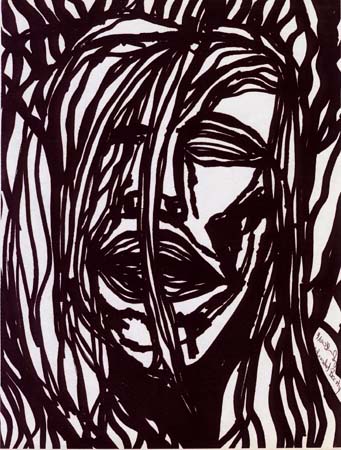
Wounded Beauty, art by Edward Michael O’Durr Supranowicz
An Honest CopP. Keith Boran
I
II
III
IV
V
VI
VII
VIII
IX
|
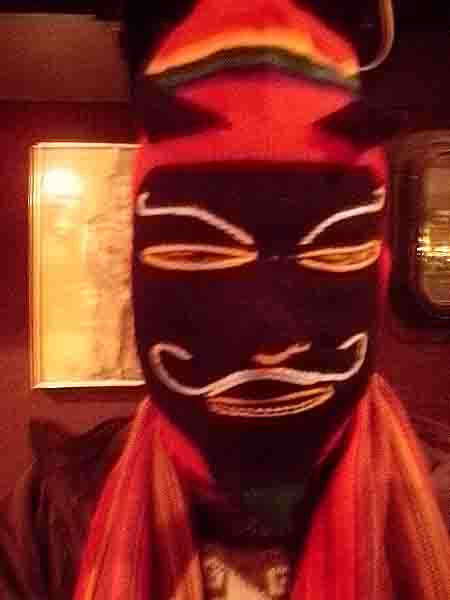
Mestizo Xanadu
(Thanks to Cuzco Peru)
i.e. Beauty Has As Many Moods As Man Has Hoods Pt II
To the Girl in the Hallway,
Jennifer McCain |

art from Brian Hosey and Lauren Braden

Debra Purdy Kong, writer, British Columbia, Canada I like the magazine a lot. I like the spacious lay-out and the different coloured pages and the variety of writer’s styles. Too many literary magazines read as if everyone graduated from the same course. We need to collect more voices like these and send them everywhere.
Children, Churches and Daddies. It speaks for itself. Write to Scars Publications to submit poetry, prose and artwork to Children, Churches and Daddies literary magazine, or to inquire about having your own chapbook, and maybe a few reviews like these.
what is veganism? A vegan (VEE-gun) is someone who does not consume any animal products. While vegetarians avoid flesh foods, vegans don’t consume dairy or egg products, as well as animal products in clothing and other sources. why veganism? This cruelty-free lifestyle provides many benefits, to animals, the environment and to ourselves. The meat and dairy industry abuses billions of animals. Animal agriculture takes an enormous toll on the land. Consumtion of animal products has been linked to heart disease, colon and breast cancer, osteoporosis, diabetes and a host of other conditions. so what is vegan action?
We can succeed in shifting agriculture away from factory farming, saving millions, or even billions of chickens, cows, pigs, sheep turkeys and other animals from cruelty. A vegan, cruelty-free lifestyle may be the most important step a person can take towards creatin a more just and compassionate society. Contact us for membership information, t-shirt sales or donations.
vegan action
Children, Churches and Daddies no longer distributes free contributor’s copies of issues. In order to receive issues of Children, Churches and Daddies, contact Janet Kuypers at the cc&d e-mail addres. Free electronic subscriptions are available via email. All you need to do is email ccandd@scars.tv... and ask to be added to the free cc+d electronic subscription mailing list. And you can still see issues every month at the Children, Churches and Daddies website, located at http://scars.tv
MIT Vegetarian Support Group (VSG)
functions: We also have a discussion group for all issues related to vegetarianism, which currently has about 150 members, many of whom are outside the Boston area. The group is focusing more toward outreach and evolving from what it has been in years past. We welcome new members, as well as the opportunity to inform people about the benefits of vegetarianism, to our health, the environment, animal welfare, and a variety of other issues.
Dusty Dog Reviews: These poems document a very complicated internal response to the feminine side of social existence. And as the book proceeds the poems become increasingly psychologically complex and, ultimately, fascinating and genuinely rewarding.
Dusty Dog Reviews: She opens with a poem of her own devising, which has that wintry atmosphere demonstrated in the movie version of Boris Pasternak’s Doctor Zhivago. The atmosphere of wintry white and cold, gloriously murderous cold, stark raging cold, numbing and brutalizing cold, appears almost as a character who announces to his audience, “Wisdom occurs only after a laboriously magnificent disappointment.” Alas, that our Dusty Dog for mat cannot do justice to Ms. Kuypers’ very personal layering of her poem across the page.
Fithian Press, Santa Barbara, CA Indeed, there’s a healthy balance here between wit and dark vision, romance and reality, just as there’s a good balance between words and graphics. The work shows brave self-exploration, and serves as a reminder of mortality and the fragile beauty of friendship.
Mark Blickley, writer You Have to be Published to be Appreciated. Do you want to be heard? Contact Children, Churches and Daddies about book or chapbook publishing. These reviews can be yours. Scars Publications, attention J. Kuypers. We’re only an e-mail away. Write to us.
The Center for Renewable Energy and Sustainable Technology The Solar Energy Research & Education Foundation (SEREF), a non-profit organization based in Washington, D.C., established on Earth Day 1993 the Center for Renewable Energy and Sustainable Technology (CREST) as its central project. CREST’s three principal projects are to provide: * on-site training and education workshops on the sustainable development interconnections of energy, economics and environment; * on-line distance learning/training resources on CREST’s SOLSTICE computer, available from 144 countries through email and the Internet; * on-disc training and educational resources through the use of interactive multimedia applications on CD-ROM computer discs - showcasing current achievements and future opportunities in sustainable energy development. The CREST staff also does “on the road” presentations, demonstrations, and workshops showcasing its activities and available resources. For More Information Please Contact: Deborah Anderson dja@crest.org or (202) 289-0061
Dorrance Publishing Co., Pittsburgh, PA want a review like this? contact scars about getting your own book published.
 The magazine Children Churches and Daddies is Copyright © 1993 through 2012 Scars Publications and Design. The rights of the individual pieces remain with the authors. No material may be reprinted without express permission from the author. 
Okay, nilla wafer. Listen up and listen good. How to save your life. Submit, or I’ll have to kill you.
Dorrance Publishing Co., Pittsburgh, PA: “Hope Chest in the Attic” captures the complexity of human nature and reveals startling yet profound discernments about the travesties that surge through the course of life. This collection of poetry, prose and artwork reflects sensitivity toward feminist issues concerning abuse, sexism and equality. It also probes the emotional torrent that people may experience as a reaction to the delicate topics of death, love and family. “Chain Smoking” depicts the emotional distress that afflicted a friend while he struggled to clarify his sexual ambiguity. Not only does this thought-provoking profile address the plight that homosexuals face in a homophobic society, it also characterizes the essence of friendship. “The room of the rape” is a passionate representation of the suffering rape victims experience. Vivid descriptions, rich symbolism, and candid expressions paint a shocking portrait of victory over the gripping fear that consumes the soul after a painful exploitation.
Dusty Dog Reviews (on Without You): She open with a poem of her own devising, which has that wintry atmosphere demonstrated in the movie version of Boris Pasternak’s Doctor Zhivago. The atmosphere of wintry white and cold, gloriously murderous cold, stark raging cold, numbing and brutalizing cold, appears almost as a character who announces to his audience, “Wisdom occurs only after a laboriously magnificent disappointment.” Alas, that our Dusty Dog for mat cannot do justice to Ms. Kuypers’ very personal layering of her poem across the page.
|


